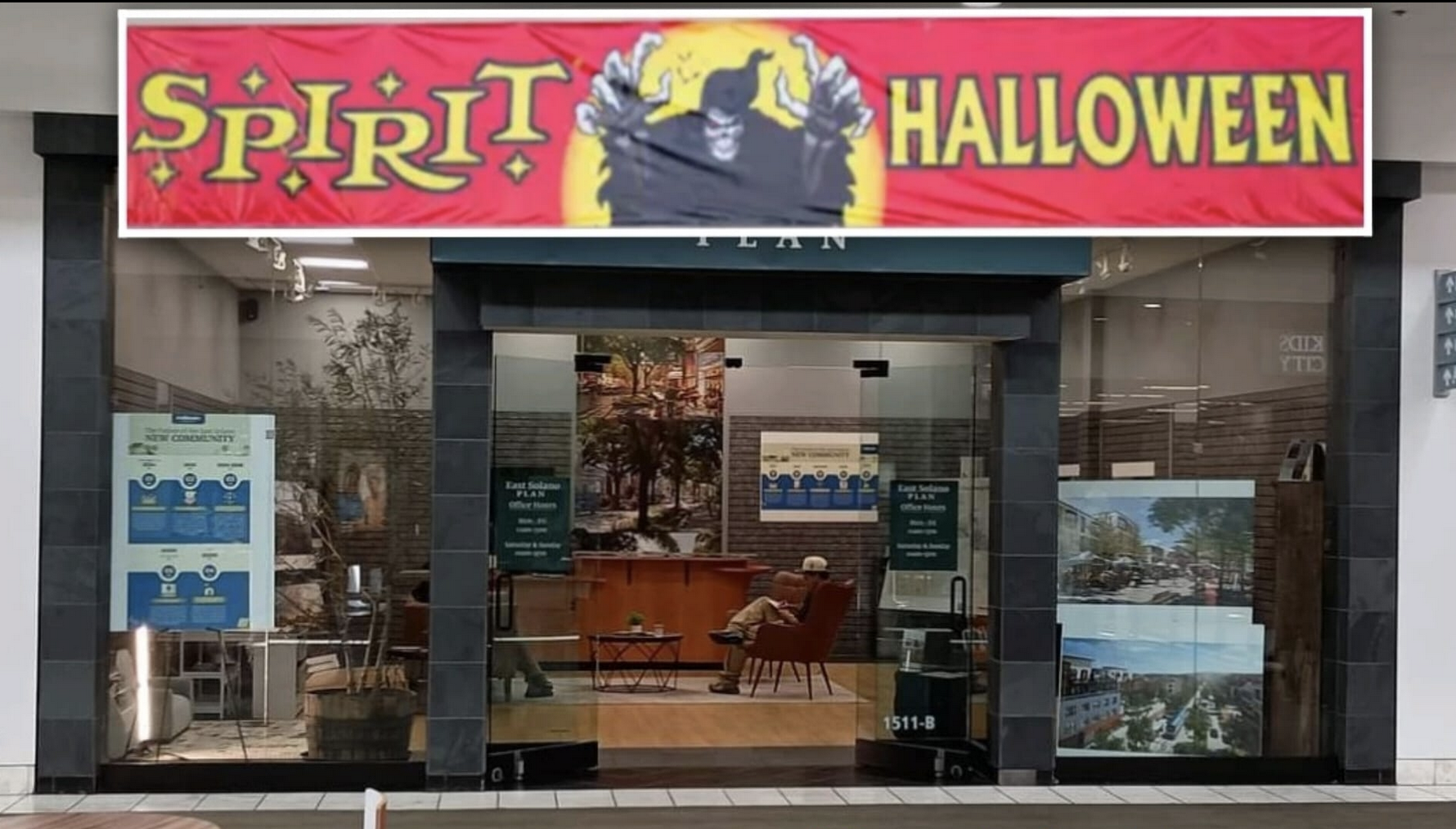California Forever folds...for now
The Sili Valley billionaires' utopia in the remote ag lands of southern Solano County will not be going to the ballot in November 2024. The project's promoters pulled the plug after the County's back-of-the-envelope impact analysis confirmed what opponents have been saying all along: that the project's infrastructure needs are enormous and that taxpayers would be stuck with the bill.

To cover their tracks, the project promoters said they would work with the County's normal development process, which could, by 2026, result in a General Plan Amendment, with changes to the Zoning Ordinance that implements the General Plan and an enforceable Negotiated Agreement about who pays for what. Developers who know how to get stuff done have shown their skill at working the system to win approval for land development projects all over the state. The California Forever people are promising a kind of "California Forever Strikes Back" sequel as though they, too, are developers who know what they are doing.
California Forever has spent the last year trying to charm Solano County residents into supporting its plan — erecting billboards, opening offices and holding town hall meetings where Mr. Sramek promised to create thousands of new jobs and make hundreds of millions in community investments. But residents remained skeptical.Conor Dougherty, "Silicon Valley Investors’ Plans for a New City Put on Hold "(New York Times, June 22, 2024)
That's interesting because, so far, the project proponents have acted like they don't have much of a clue about how to work the system. Instead, they have acted like Tech Industry Disrupters, smarter-than-you rich guys with poorly thought-out ideas on how to do something differently. Usually, the end-users of their products (ordinary people) wind up as Beta-Testers, de-buggers of the flaws and foibles in the not-quite-ready-for-prime-time results. Microsoft set the tone for that style of product introduction. The company brought forth a computer operating system cobbled together from a bunch of miscellaneous software parts purchased from other tech entrepreneurs. Updates to Microsoft's operating system for "bug-fixes" became frequent and routine. Along the way Microsoft made sweetheart deals with big-ticket buyers, all while eager techies gobbled up the operating systems despite the defects. Uber and Lyft learned from Microsoft that you could get rich by "disrupting". In their case it was taxi service. AirB&B disrupted hotels. Amazon disrupted retail sales. Zillow and Redfin disrupted real estate. Fast forward many years and we have housing shortages for which some people blame AirB&B, VRBO and the like for taking houses off the market and turning them into distributed hotel space (or, in the case of companies like Zillow, by treating residential real estate as an investment portfolio item). Users defaulted to Uber and Lyft instead of previously-functional taxi services. Public transit wound up de-funded. Online purchasing created ghost malls and complicated shipping and delivery systems. Disruption, it seems, often brings unintended consequences. But the Techies who thought up the original disruptive concepts made beaucoup bucks. The California Forever people thought they could disrupt land use and development. They threw spaghetti at the wall to make it sound like they knew what they were doing - a large swimming lagoon, lots of solar panels, industrial warehouses for new tech start-ups, and so on. They have since learned that their product - a green, walkable, "affordable" community half the size of San Francisco's population - was nowhere close to being ready for release to Beta Testing.
Here at California (un)Incorporated, we have watched the California Forever scheme with interest and a bit of trepidation. Community infrastructure and the governance system needed to make it all work were missing from the proposal. We wondered how it was that monied people could buy a city deprived of those elements while 5 million Californians were left stranded in unincorporated communities that, due to neglect and failed governance - similarly underperformed. Most of those 5 million Californians live in existing, unplanned communities that have evolved from a hodgepodge of land development projects that were approved piecemeal over time. We seek order from that chaos. A few of the 5 million Californians live in actual planned communities - places intended from Day One to become fully self-sustaining, self-governing places with a full, rich community fabric. California's newest city, Mountain House, is one such place. San Joaquin County OKed development there with the specific end in mind of a sustainable city with local control. But that took 30 years to come to fruition, and the new city is the ONLY city in California that does not get any municipal revenue from vehicle license fees. Orange County's Ladera Ranch is another such planned community, one we hope will, like Mountain House, one day enjoy self-determination.
We are not opposed to disruption, though. We want to see the broken process California uses to form new cities disrupted. We would be happy if a Sili Valley philanthropist would throw some money our way to make that happen. Really, though, it should not require billionaire investors to step up on behalf of the residents and businessses of California's urbanized unincorporated communities that don't have Mayors and City Councils to focus on local priorities. Fat cats with unlimited resources should not have to relieve counties of the burdens of municipal service delivery - those responsibilities that get in the way of areawide service delivery. No, we think it is up to our elected officials in the Legislature to do the disrupting (as they have done before) and we are prepared to work with them to make the course corrections.
